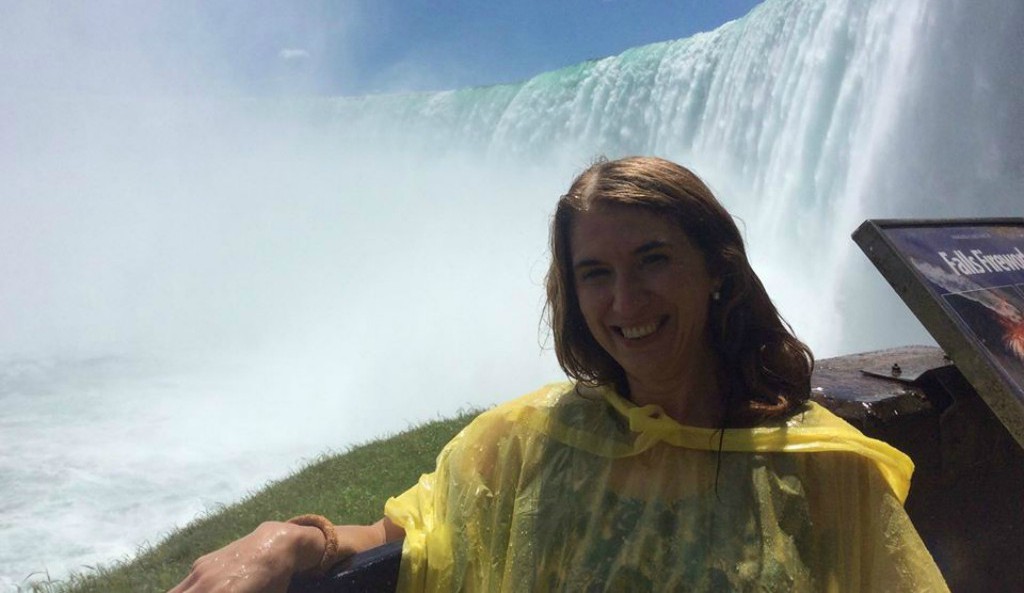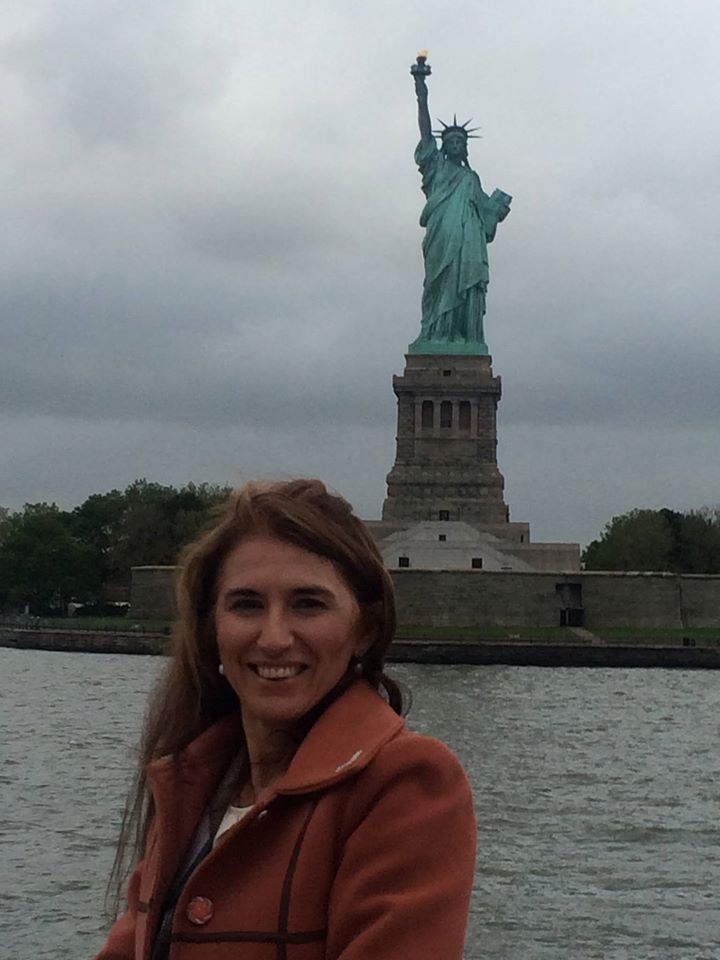Fear is what has kept Canadian Nigyar Mamedovar anchored inside her New York City apartment rather than taking a short flight home to Toronto.

As the coronavirus pandemic has consumed the region just a 10-hour drive from the border, Mamedovar says the process of emerging from her neighbourhood to board a plane or rent a car to return to Canada seems like a risk to her health.
“I’m really afraid to go back,” said Mamedovar. “I decided at this point in time, it’s safer to be where I am. My concern is getting infected by the time I get on the plane.”
New York City has emerged as one of the most severely impacted regions on earth by the COVID-19 pandemic.
It has over 106,000 cases and over 7,300 deaths — making up the majority of the state’s more than 10,000 deaths. New York state itself has upwards of 180,000 cases, surpassing Italy and Spain, according to data kept by Johns Hopkins University.
“I did not expect that things would escalate to this point in New York… that things got that bad, because we have so many deaths,” she said.
“I’m in Brooklyn, and this is one of the most infected areas… so I’m pretty much not leaving the house.”
On March 21, the land border between the U.S. and Canada became limited to essential travel only for a 30-day period that is set to end on April 19.
Mamedovar arrived in New York City in February from Hong Kong, where she was working on a project for an accounting firm. After the Canadian government issued a travel advisory for China, she says she opted to continue the project in New York and was comforted by its proximity to Toronto so she had the option to return home.
But the move from Asia to the U.S. has evolved to be an ‘out of the frying pan, into the fire’ scenario for Mamedovar.

When Prime Minister Justin Trudeau said at a March 16 press conference that “it’s time” for Canadians abroad to return home, she contacted the Canadian consulate and is in frequent communication with them.

Get breaking National news
A stern recommendation from the consulate would compel her to board a flight, despite her anxiety around travelling, she said. So far. she says she has not received that kind of direction.
However, she says she still feels supported by the consulate and is grateful to have the option to go back to Toronto if she chooses.
For now, Mamedover says she only leaves the apartment to shop for groceries and dons a mask and gloves when she does.
The atmosphere in the city has been increasingly morose, she said — especially as more than 700 deaths per day were seen in the week ending on April 11, for a total of 5,226 deaths during those few days, according to The Associated Press.
“I cannot sleep through the night for the last few weeks, because the ambulance sirens do not stop. When you constantly hear these ambulances, that doesn’t let you forget how serious the situation is.”
Staying to work on the front lines of a crisis
Remaining in a region ravaged by the virus is a choice not second-guessed by Dr. Chethan Sathya, a Canadian pediatric surgeon and epidemiologist who moved to NYC in October of last year.
After years of training, Sathya arrived in the city to begin his first job as a surgeon at the Cohen Children’s Medical Centre.
For the health-care workers in the city who are bearing the brunt of the pandemic, the scenarios encountered daily are unlike what most have ever seen before, he said.
“Many hospitals are at capacity. People are getting very, very sick from this disease very quickly — otherwise healthy young people,” he said.
“Morale is generally low. There’s a lot of anxiety around this, about getting infected yourself or bringing it back to your loved ones. So the stress level is very, very high everywhere in the hospitals now.”
At Sathya’s hospital, there is enough personal protective equipment to go around — but there’s always a concern that more will be needed, and some other hospitals aren’t as lucky, he said.
Some hospitals have seen continued shortages of masks, gowns, gloves and other protective equipment, Politico reported on April 14.
Regardless of equipment available, front-line workers have adopted a regime where they either isolate from family members or they change clothes and shower before they interact with anyone, he said.
Continuing his work on the front lines in the U.S. is a “true privilege” and he hasn’t questioned whether he should return to his hometown of Toronto, he said.
“I feel very much at home, almost like this is no different than Canada for me in the sense that everyone is really supporting one another. I see so many acts of kindness,” he said.
New York City residents have been grocery shopping for front-line workers and cheer for them daily from their apartments, he said.
“I want to stay here and be a part of this effort, similarly in how I would feel in any disaster situation where people have sacrificed their lives and they’re all working as hard as they can.”
In terms of the outlook for the city, small signs of hope have been announced by officials indicating the infection rate is falling and the rate of hospitalizations has begun to taper off.
But many are continuing to die of the virus each day and there are fears that warmer weather may send more New Yorkers outdoors instead of isolating inside, said Sathya.

The messaging that needs to continue to hold is that physical distancing remains extremely important, he said.
“The real key is that if we don’t get control of it, and our hospitals get overwhelmed, that people will die just because of that.”
‘Should I go back to Montreal?’
When Heidi Chapson moved to New York City from Montreal five years ago, she made the leap across borders to work in tech and to take a chance on her career.
Now working from home in an NYC apartment where units are crammed next to each other, she says she hopes she made the correct choice to stay rather than return to Quebec, where most of her friends and family live.
“I was a little freaked out in the past few weeks just because … the population density here is really tight. There’s a lot of people in such a small space, including our dwellings,” she said.
After her next-door neighbour tested positive for COVID-19, Chapson felt more alarmed and questioned her choice to remain in her apartment. Opening her front door, she’s already nearly on the neighbour’s doorstep, she said.
Chapson pressed her landlord, who lives in New Jersey, along with building managers about safety around positive cases in the building. She asked if extra cleanings precautions were being implemented in her building.
She says she was instead told to behave as if “everyone in the building” has coronavirus, without any further direction.
“That’s what was giving me anxiety… Like, am I safe enough to stay here or should I go back to Montreal where there’s less cases?” she said.
Arriving back in Canada would mean a 14-day quarantine, taking the risk of travelling and living with family while being concerned about re-entry into the U.S. later on, and keeping her job, she said. Her health insurance in Quebec wouldn’t be valid right away either, she added.
At the moment, she says she’d only return if she loses her job — but she’s prepared to make the decision to come home if she needs to.
Learning how to adjust to a new normal of grocery shopping once a week along with staying indoors as much as possible has mitigated her daily amount of stress, she added.
“I feel a little bit less anxious because I’ve resigned myself to the situation,” she said.
Questions about COVID-19? Here are some things you need to know:
Health officials caution against all international travel. Returning travellers are legally obligated to self-isolate for 14 days, beginning March 26, in case they develop symptoms and to prevent spreading the virus to others. Some provinces and territories have also implemented additional recommendations or enforcement measures to ensure those returning to the area self-isolate.
Symptoms can include fever, cough and difficulty breathing — very similar to a cold or flu. Some people can develop a more severe illness. People most at risk of this include older adults and people with severe chronic medical conditions like heart, lung or kidney disease. If you develop symptoms, contact public health authorities.
To prevent the virus from spreading, experts recommend frequent handwashing and coughing into your sleeve. They also recommend minimizing contact with others, staying home as much as possible and maintaining a distance of two metres from other people if you go out.
For full COVID-19 coverage from Global News, click here.














Comments
Want to discuss? Please read our Commenting Policy first.